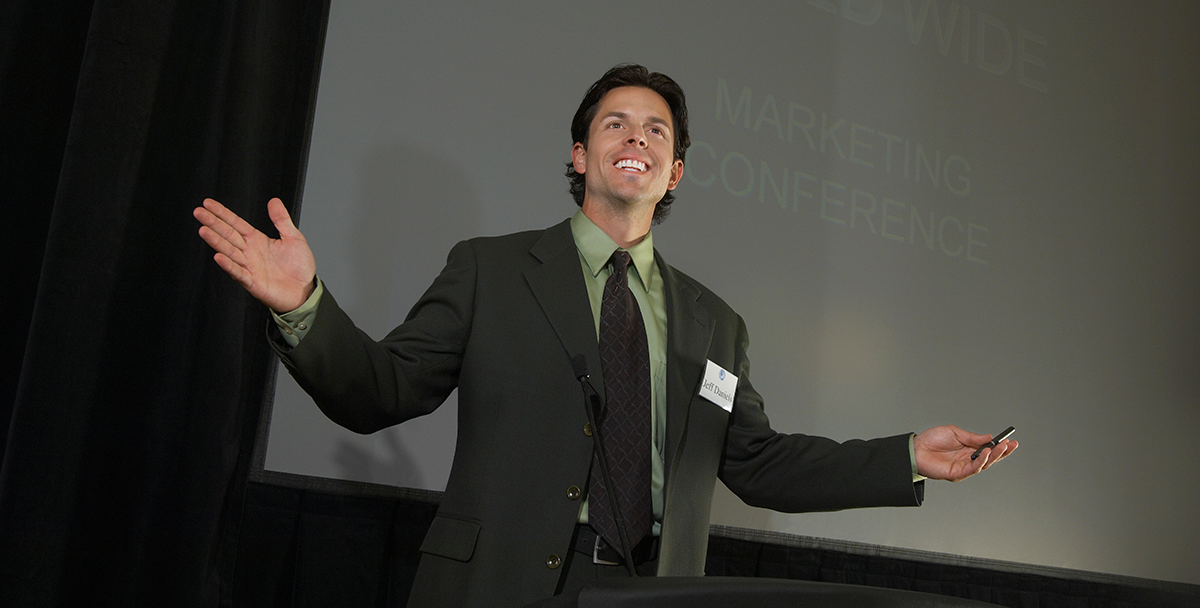I attended a luncheon that culminated with an insurance expert explaining his services to the attendees. As soon as the speaker turned on the projector to start his presentation, the bulb blew. A quick inspection revealed there was no spare and the restaurant staff didn’t even know their projector used bulbs! Instead of panicking, the insurance expert simply said, “I’ll just have to cue you more carefully as you follow along with your handouts.” He then proceeded with his talk.
As he talked, he regularly scanned the audience to pace his talk appropriately for the group. When a few heads would bend together to discuss a point he had just made, he would slow his pace and watch them to see if he needed to interject or if they were simply conferring among themselves. Now and again, he would steal a quick glance at his watch perched on the table in front of him to track his timing. When there were ten minutes remaining, he wrapped up his presentation and stated he would take questions for the next ten minutes. As the final minutes slipped by, he thanked us for our time then referred us to his contact information in the handout if we had further questions. It was an informative and pleasant presentation, because the expert was not only an insurance specialist, he was an expert presenter.
To make your presentations rank with the professionals, learn from our expert:
- He KNEW his topic. And since he was obviously comfortable with the information, he projected his confidence—even without a projector.
- He did not panic when the projector bulb blew. Although he had anticipated using the projector and pacing his presentation from it, he easily switched gears and presented in a different manner. The key to success is don’t rehearse your presentation so it sounds the same each time you practice it. You’ll end up memorizing your presentation instead of the information. Practice delivering the information—that is what’s important.
- He did not apologize profusely for the blown bulb. He simply (and calmly) stated he would take a different approach. Nothing is more distracting than a presenter constantly apologizing for making mistakes or for equipment failures. The more the speaker dwells on the mistakes or malfunctions, the more the audience does too. Just accept the mishap and move on!
- He didn’t read the handouts to us; he talked to us. Reading a presentation to your audience will put them to sleep. (Remember bedtime stories?)
- He watched his audience for pacing and understanding. If you read your presentation, you will miss cues from your audience that can guide your pacing. You aren’t looking at them; you are looking at the page.
- He paced his presentation to allow for questions and then stopped the session at the scheduled time. He didn’t disrespect our time commitments.
I give presentations regularly, so I am a very critical audience member. This presentation wasn’t flashy—he lost his flash when the bulb blew—however, his presentation was really good. He knew his material, watched his audience, and exhibited his professionalism by staying calm. He was an expert presenter.
Copyright MMII – Liz Weber, CMC, CSP – Weber Business Services, LLC – www.WBSLLC.com +1.717.597.8890
Liz supports clients with strategic and succession planning, as well as leadership training and executive coaching. Learn more about Liz on LinkedIn!

























